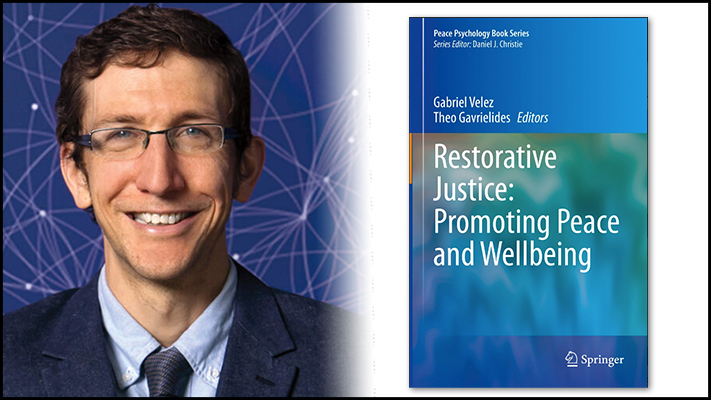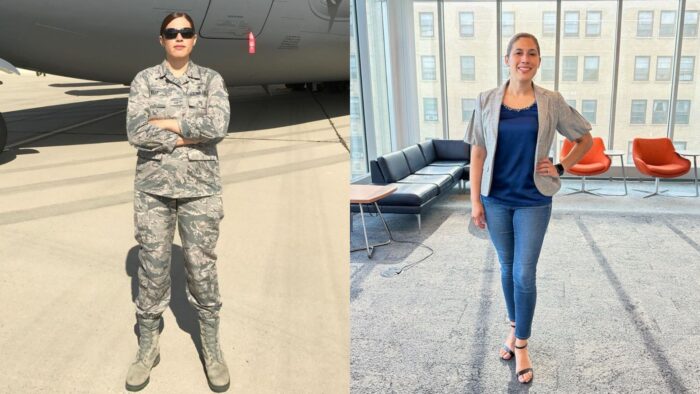Co-edited by Dr. Gabriel Velez, assistant professor of educational policy and leadership in the College of Education

“Restorative Justice: Promoting Peace and Wellbeing” is a timely collection of chapters written by international experts that bridge the gap between peace psychology and restorative justice. The editors combined their respective fields of expertise to curate an array of contributions aimed at starting a much-needed discussion of the potential and challenges at the intersection of restorative justice and the field of peace psychology. The volume highlights how psychological theory and research can inform and evaluate the potential of restorative practices in formal and informal educational settings, as well as the criminal justice space. The chapters cover negative and positive peace across levels, while introducing the reader to various case studies from across the world. All in all, the book explores how restorative justice can promote positive peace through its connection fostering dialogue, empathy, forgiveness, and other key psychological elements of peace.
Learn more or purchase this book on Springer
Dr. Velez answered some questions about his new book, including where the idea for the book came from, his favorite part of the writing process and what he hopes the book can accomplish.
A collection of chapters highlighting connections between our psychological processes, building peaceful and harmonious societies, and restorative justice.
Yes. It is the first book I have published, and I am a co-editor of it.
In my own work, I study both peace education and restorative justice, focusing on how these educational experiences influence how young people think about themselves and their places in the world. Working in both these areas, I realized that there was not a lot of connection across the two fields, but that they are integrally related.
I hope to start a deeper conversation about how restorative justice can be understood as a pillar in building more peaceful, harmonious societies. I think psychology has a lot to offer in understanding this connect, and this book offers some food for thought and possible areas for further integration.
In my research, I am pushing forward with thinking about and studying restorative justice as a developmental influence. In other words, restorative justice in schools is often framed as helping with behavioral concerns, infractions or school climate. I am interested in understanding its broader potential to provide young people with formative experiences and frameworks for building more just, equitable and humane societies as engaged actors in their various communities.
I loved reading the different perspectives from the authors, as well as learning from my experienced co-editor. The array of backgrounds and foci of the different contributors include work from across the globe, thinking about restorative justice in contexts that are very different from the school settings I work in, and from scholars who are really models of thoughtful engagement on these topics. It was a real intellectual and personal growth experience for me.
Are there any other Marquette connections to the topic or development process of your book?
In addition to co-editing the book, I also co-authored a chapter, “Developing Youth Peacebuilders: The Potential of School-Based Restorative Justice in the USA,” with Antonio Butler, restorative practices practitioner at the Center for Self-Sufficiency in Milwaukee. Another chapter, “Diverse Approaches for Implementing Restorative Practices in Schools in the U.S.,” was authored by a trio from Marquette’s Department of Psychology: Dr. Astrida Kaugars and Dr. John Grych, professors of psychology, and graduate student Jamee Carroll.
If you have recently published a book, or if you have one coming out, we would like to feature your publication in an upcoming Marquette Bookshelf feature. More information on the submission process is available online.
Book Details
- Publisher: Springer (Sept. 27, 2022)
- Language: English
- Pages: 255 pages
- ISBN-10: 3031131002
- ISBN-13: 978-3031131004


